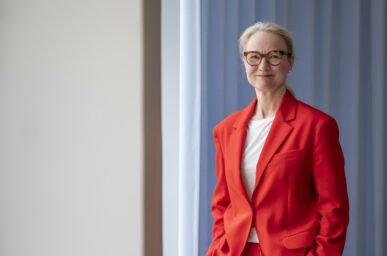In the latest RTL/ntv trend barometer, Alternative for Germany reached its highest level yet at 26 percent, ahead of the ruling Christian Democrats. The latter fell to only 24 percent, which is the worst result since 2021. Confidence in the governing coalition headed by Chancellor Friedrich Merz also declined significantly.
The far-right Alternative for Germany (AfD) has become the most popular party in Germany, according to the most recent poll carried out by Forsa Institute for Social Research and Statistical Analysis. The poll results put AfD (26 per cent) ahead of Chancellor Friedrich Merz’s conservative bloc (CDU/CSU, 24 per cent).
Social Democrats (SPD), who participate as junior partner in the ruling coalition with CDU/CSU, remain at 13 percent. Compared to previous poll, the Greens gained one point to also reach 13 per cent. The Left Party stands at 11 per cent, having lost one point. The Forsa poll also found that the proportion of non-voters and undecided voters rises to 25 percent. That is significantly more than in the 2021 federal election (17.9 per cent).
Though this is not first time when AfD has led a poll, it is clear that the party’s popularity has been on the rise over the past months. Various competing polls put AfD’s support usually between the 22 and 25 per cent mark. That is, however, distinctively more than the party had received in the latest parliament elections in February 2025 (20.8 per cent).
You might be interested
One hundred days, poor performance
Friedrich Merz assumed the office of German Chancellor on 6 May, 2025. Now—100 days later—his approval rating has fallen to a record low according to the poll. Only 29 percent of those surveyed are satisfied with his work while 67 percent are dissatisfied. Mr Merz’s performance is viewed particularly critically in eastern Germany (only 20 percent approval), while in the west the figure is 31 percent.
Only 29 percent of German population are satisfied with Chancellor Merz’s work. — Forsa Institute opinion poll
Despite Mr Merz’s poor approval ratings, a narrow majority of 52 percent of the population believes that the grand coalition between the CDU/CSU and SPD will remain in place until the end of the legislative period in 2029.
East Germany, AfD’s stronghold
The Alternative for Germany was founded in 2013 by a group of economics professors. Initially it was a single-issue party that opposed the common european currency and financial help for heavily indebted countries like Greece. Over the years, however, the party’s priorities have changed.
Since the beginning of the migration crisis in 2015, the party has gained support mainly due to its opposition to irregular in-migration to Germany from non-European countries. AfD has been repeatedy labelled racist and xenophobic, some of its leading figures expressed favorable views of Nazi Germany.
On the federal level, Germany’s democratic parties keep refusing to cooperate with AfD. On local and provincial levels, however, it is a different story as in many cases it would otherwise be impossible to form working coalitions. That often happens in former East Germany where AfD has always enjoyed the strongest support. In some East German regions the party wins close to 50 per cent of all the votes.











